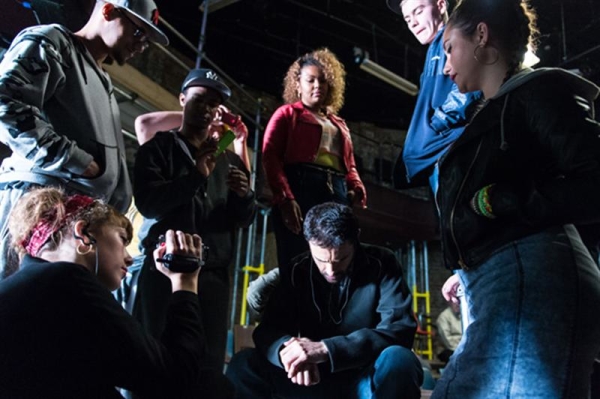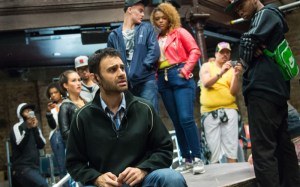Catherine Love: Truth and lies in documentary theatre
What claim do verbatim shows like ”Little Revolution” at the Almeida have on truth?

© Manuel Harlan
Theatre’s relationship with the truth has always been a fraught one. It is a medium based so often on stories and illusions, but in recent years theatre has been making more and more claims to fact and authenticity. Documentary theatre is now so popular that it has become a genre of its own, making an artform out of the truth – or so it tells us.
The latest piece of theatre to put the truth centre stage is Little Revolution at the Almeida. Following the success of previous verbatim shows such as The Girlfriend Experience and most significantly London Road, Alecky Blythe has been out with her Dictaphone again, this time on the streets of Hackney during and after the riots of 2011. Out of the chaos of those events three years ago, Little Revolution attempts to make some sort of sense.
I have yet to see Little Revolution myself, but already its authenticity – or otherwise – has attracted comment in several of the reviews. One element that particularly intrigues me is the decision by Blythe to put herself on stage, foregrounding the process of her research and skewering her own middle-class voyeurism. This is, presumably, a self-critiquing tactic (or so it seems to have been interpreted), but it also does the work of reinforcing the truthfulness of the material being presented on stage. Here is the research, re-enacted and indisputable.
"I find that truth claims on stage more often have just the opposite effect to that intended"
Perhaps this is just a contrary impulse of mine, but I find that truth claims on stage more often have just the opposite effect to that intended. There’s a touch of anxiety about their insistence on their own veracity. As soon as a piece of theatre declares, loudly and conspicuously, that what it is presenting before its audience is not fiction but fact, my instinct is to begin questioning the limits of that fact. What has been cut, excluded or minimised?
Of course, some of the best theatre to have emerged alongside the popular verbatim form plays with just this uncertainty around truth and fiction. One of the surprise highlights of this year’s Edinburgh Fringe was Wunderbaum’s Looking for Paul, a smart, startling and hilarious interrogation of contemporary art, authenticity and public funding. It opens with a slideshow presentation from Paul McCarthy hating Rotterdam resident Inez, complete with photographic evidence, before the company proceed to read out the emails exchanged during their residency in Los Angeles, during which they attempt to bring Inez and McCarthey face to face. Just in case the show transfers, I won’t give it all away, but suffice to say things aren’t quite as they seem.
In a recent blog post, Megan Vaughan came up with the perfect term for the "truth" that verbatim shows like Little Revolution place on stage: "realness". A child of reality television, it suggests a turn towards something somehow more real than what has preceded it, yet it is still glazed with a thin layer of artifice. This is not to deny that verbatim can be a fascinating, inventive form, as London Road or something like Chris Goode and Company’s Monkey Bars have demonstrated. But perhaps more of these shows should confess to and explore their "realness" rather than clinging to fact and research. Because sometimes, it is through lies that the real truths emerge.














